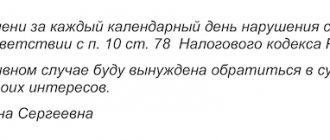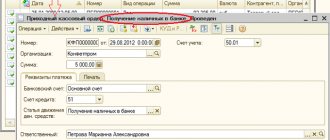eBay's money-back guarantee turned out to be an advertising ploy. Online shopping is becoming increasingly popular among Russians every year. According to the Association of Internet Trade Companies (AKIT), last year the turnover of online trade in the country amounted to about $20 billion, and this year it may reach $24 billion.
You won’t surprise anyone with attractive prices on the Internet. The key to successful online trading is a guarantee of delivery of your purchase. Or, at least, a guarantee of the return of the money paid in the event that due to circumstances the goods could not be delivered. This is largely why buyers often prefer large companies. By default, it is believed that small market players are ready to dump, but save on customer support. Accordingly, if “something goes wrong,” the buyer will be much less protected. But situations in which the client is completely unprotected in negotiations with an online seller can easily arise when working with large and reliable suppliers.
I often make transactions on the online auction site eBay. It would seem - one of the undisputed international flagships of the industry. In Russia, in the second half of 2014 alone, about 3.7 million buyers were recorded in this system. The company is known for its attention to its reputation and strong customer support. Thus, eBay actively advertises its “Money Back Guarantee” program.
“If you have problems purchasing an item, you can use the eBay Money Back Guarantee program. This program guarantees that customers will receive the goods they ordered or get their money back,” reads the information on the company’s website. This program applies, among other things, to cases when the goods have not been received, and payment was made through the PayPal or QIWI payment systems.
It would seem that with such guarantees you can safely enjoy online shopping. But, as it turned out, this program is just an advertising ploy. When unusual situations arise, communicating with ebay representatives is a very difficult and troublesome task.
My story began as usual. At the end of March, I purchased a vase from the famous Lenox brand on eBay. Its cost was low - $9.49. Another $47.03 was the shipping cost. The purchase was paid through the QIWI payment system. The transaction was successful. An inscription appeared on the website stating that the estimated delivery time is April 15 – April 27, 2015.
However, a few days later, on March 31, a message was received that the seller had canceled the order on ebay. At first glance, the situation is ordinary. I've encountered something like this before. Within 1-2 days the money was returned. But this time everything was different. More than a week has passed, and the paid amount has not arrived in my account. I sent a letter to the site asking about the fate of my funds.
The response from ebay support came on the same day and was very prompt and optimistic. “I'm very sorry to hear that you are having difficulty with the NEW Lenox “Rose Blossom” 7-1/2″ Bud Vase with 24K Gold Trim w COA Ivory (#201808038043). I carefully studied the details of your account, and I see that a partial purchase price ($37.46) was sent to you on March 30,” support specialist Alexey wrote to me.
However, he insistently suggested that I contact PayPal customer support to find out the reason for the delay. I told the ebay representative that I paid not through Pay Pal, but through QIWI. I got another answer. This time from customer support employee Alexandra. First of all, I recommend that you contact the QIWi wallet support service to clarify the issue of a refund. Even if you made a payment through a QIWi wallet, the transaction still goes through the PayPal payment system,” the ebay employee insisted.
The answers gradually began to alarm me. I got the feeling that ebay was ready to send me to anyone, just so as not to deal with the problem that had arisen.
However, I had no choice, and I started communicating with payment systems. The PayPal employee politely and professionally explained that no money had been received into my account and, in fact, could not have been received, since the payment did not go through PayPal. QIWI confirmed that there was no transaction and sent a confirming account statement. I immediately sent the information received to ebay.
On April 11th I received an even stranger response from ebay: “Sorry, we were unable to cancel your order because the refund to your PayPal account was unable to be processed. Contact the seller."
In 2014, the turnover of online commerce in the country amounted to about $20 billion, and this year it could reach $24 billion.
That is, the company simply abandoned its previous statements. It started to seem to me that I was communicating not with ebay, but with a small Russian company. However, I started communicating with the seller (user bobbieb).
I learned from the seller that ebay had previously informed him about the failed transaction that “the problem arose with the buyer,” that “I cannot accept the item,” that the transaction was stopped. As a result, for these reasons, ebay ordered him to cancel the order.
The seller then contacted ebay customer service in their country. There he was told that the company did not see any problems with resending the goods. I agreed and began to wait for the “long-suffering vase.
However, it turned out again that everything is not so simple. In mid-April, another support employee called me and asked me about the situation that had arisen for about half an hour. The conversation ended, as usual, with optimistic promises that “everything will get better soon.”
On April 23, I received a killer response in the mail: “Your recently ordered NEW Lenox “Rose Blossom” 7-1/2″ Bud Vase with 24K Gold Trim w COA Ivory from bobbieb* cannot be delivered because the order was cancelled. bobbieb* will contact you shortly to cancel this order and issue a refund."
I contacted the seller again, who told me a slightly different version: “they said that Ebay is sending back the Lenox Vase that I sent you. The order has been canceled on your part."
That is, it was once again confirmed that ebay considers it absolutely normal to send different versions of events to the seller and buyer. It is clear that, in many respects, this situation arises due to the fact that communication with clients from different countries is carried out by different departments of the company’s support service. But it's clear that ebay's global customer support could be much better synchronized. After all, for the most part they send “standard formal” answers.
However, this is not the end of the story. I carried on further correspondence with the “conflict resolution center”, where I was recommended to contact the ebay support service. “We are sorry that you did not receive the NEW Lenox “Rose Blossom” 7-1/2″ Bud Vase with 24K Gold Trim w COA Ivory. You have opened a request and we have notified the seller that you have requested a refund on this item,” they told me on April 27th. This date turned out to be truly key for this story.
That same day, less than an hour later, I received another email from ebay. This time, support service employee Dasha wrote to me: “After reading your letter, I understand that you did not receive a refund for the goods that were not received. We apologize that there were issues with your transaction and we fully share your concerns regarding this issue. My name is Dasha, and I will be happy to help with your problem. I have sent a request to correct this misunderstanding. Once it has been processed (within 5-7 business days), the refund will be credited to your PayPal account."
It became clear that the work of not only international, but also Russian divisions of ebay was not synchronized. It seems that the company itself was already beginning to get confused about the versions of what happened. However, there was at least hope of getting the money back. But it also disappeared quite quickly.
Less than 10 minutes (!) after receiving an optimistic letter from customer support employee Dasha, I received a letter from the conflict resolution center. The response was succinct: “We have carefully reviewed this dispute and have decided not to issue you a refund. We regret that the transaction did not go through. This dispute was resolved in favor of the seller."
It is clear that this case is rather an exception to the rule. The ebay system as a whole is well established. In practice, the risk of encountering non-refund of money from her is much lower than when purchasing goods in a fictitious “Internet daisy” office. But it is obvious that ebay has long grown into a large and clumsy structure. As a result, if any element of this system fails, the affected client will spend weeks “wandering in circles, listening to and receiving formal replies from various support services. And obtaining a refund will be problematic even for the most patient and persistent. Despite all the return guarantees that ebay does not skimp on.
Knp for returning money to the buyer in the Republic of Kazakhstan
Knp refund to the buyer
If you are not yet a user of the IS “PARAGRAPH”, then become one.
Become a user of the IS “PARAGRAPH” Why do you need the “Court Decisions Database”? see more details
Analysis of the information contained in the database will help the lawyer to foresee the consequences of his legal decisions and not bring the case to court.
Helps to build a competent litigation strategy based on the study and analysis of decisions already available in the database on similar cases.
Helps check the “purity” of partners and contractors:
- — did you take part in legal proceedings?
- - as who? (Plaintiff, defendant, third party, etc.)
- - on what matters?
- — did you win or lose?
The most complete database - more 7 000 000
documents
The database contains cases:
- — civil proceedings
- - administrative proceedings
- — criminal cases of open court proceedings
Simple and convenient search for documents:
- - by territory
- - by court
- - by date
- - type
- - by case number
- - on both sides
- - according to the judge
We have developed a special type of search - SEARCH BY CONTEXT
, which is used to search the text of court documents using specified words. All documents are grouped into
individual cases
, which saves time when studying a specific court case. Each case is attached with
an information card
that contains brief information on the case - number, date, court, judge, type of case, parties, history of the process, indicating the date and action taken.
If you are not yet a user of the IS “PARAGRAPH”, then become one. Become a user of IS "PARAGRAPH"
Why do you need the section “Responses from government agencies”? see more details
1. Responses of government bodies to specific questions from citizens and organizations in various sectors of activity. 2. Your practical source for applying the law. 3. The official position of government bodies in specific legal situations requiring decisions.
The section contains all the responses of government bodies, which are posted on the “Open Dialogue” portal of the Electronic Government of the Republic of Kazakhstan. Questions and answers are included in the IS “PARAGRAPH” unchanged in accordance with the original, which will allow you to refer to them when situations arise that require confirmation and justification of your position (when interacting with government agencies, among other things). Unlike the E-Government portal, the answers from government agencies in the PARAGRAPH IS section are equipped with additional search mechanisms that allow you to search by:
- - subject matter;
- - date;
- - auto RU;
- — question number;
and also conduct a full-scale contextual search in questions and answers - both individual words and phrases in the form of a phrase.
KNP - payment purpose codes
1. Transactions with derivative financial instruments are coded depending on the type of underlying asset with which the financial transaction is carried out, indicating the payment purpose code (hereinafter referred to as the code) of the corresponding section.
2. Under section 1 “Specific translations”.
Code 150 “Transit transfers through correspondent bank accounts” is indicated by the intermediary bank. Upon receipt of a transit payment, the beneficiary's bank indicates the codes of economic sectors and payment purposes corresponding to the transactions for further submission of Information. The necessary details for this payment are indicated by the beneficiary's bank on the basis of an agreement between clients, in accordance with which payment is made for goods sold or services provided.
Code 181 “Transaction under a letter of credit” is indicated when the issuing bank transfers the amount of money (covering) to secure obligations under the letter of credit from the account of the applicant client to the account of this bank (except for the transfer of the amount of remuneration for the execution of the letter of credit), and the return of money when the letter of credit is revoked. When carrying out transactions under letters of credit, the transfer of money by the issuing bank to the beneficiary’s account is coded depending on the purpose of the payment, including:
1) payment under the letter of credit by the issuing bank with money in the amount of the letter of credit, placed at its disposal for the duration of the letter of credit with the condition that this money can be used for payments under the letter of credit (for covered letters of credit);
2) payment under a letter of credit in favor of a resident or non-resident from the client’s current account (in case of uncovered letters of credit);
3) payment under the letter of credit from the bank’s own funds from the “Debtors for Documentary Transactions” account (in the event that there is no money in the client’s account at the time of payment for uncovered letters of credit);
4) crediting of money by a non-resident bank to the correspondent account of a resident bank.
Code 182 “Transactions under the guarantee” is indicated by the issuing bank when transferring the amount of money (covering) to secure obligations under the guarantee from the account of the applicant client to the account of this bank (except for transferring the amount of remuneration under the guarantee), returning money when the guarantee is canceled. When a guarantee event occurs, the transfer of money by the guarantor bank to the client is coded depending on the purpose of the payment.
3. According to section 3 “Contributions (deposits)”.
Section 3 “Deposits” does not include payments to other persons for goods, services, specific transfers, payments and (or) transfers classified as other sections of the Detailed Table of Payment Purpose Codes.
If the payment initiator has information about the sources and purposes of crediting cash to a bank account and withdrawing cash from a bank account, a code corresponding to the purpose of the payment is indicated. Codes 311 “Placing demand deposits (opened on the basis of a bank deposit agreement)”, 331 “Depositing cash to current accounts”, 321 “Withdrawal from demand deposits (opened on the basis of a bank deposit agreement)”, 341 “Withdrawing cash from current accounts" are indicated in the absence of this information.
4. Under sections 5 “Securities, bills and certificates of deposit issued by non-residents of the Republic of Kazakhstan and investments in foreign capital” and 6 “Securities and bills issued by residents of the Republic of Kazakhstan and participation in the authorized capital of residents of the Republic of Kazakhstan”, the sale of securities to a non-resident is coded by a resident participant in the transaction as the purchase of these securities by a non-resident;
5. Under sections 7 “Goods and intangible assets” and 8 “Services”.
In sections 7 “Goods and intangible assets” and 8 “Services”, the types of goods and services are set out taking into account the national classifier of the Republic of Kazakhstan, Civil Code of the Republic of Kazakhstan 04-2008 “Classifier of products by type of economic activity (KPVED)” and the international methodology RPB6 (Balance of Payments Manual and International Investment Position, Sixth Edition) International Monetary Fund.
Payments for goods and intangible assets, services include prepayment (advance payments).
Section 7 “Goods and Intangible Assets” does not include payments for precious metals classified under Section 2 “Transactions with Foreign Currency and Precious Metals.”
Code 730 “Purchase of non-produced non-financial assets” is indicated when making payments for:
1) land and its subsoil, including payments for the right to permanent land use;
2) material assets that are used to produce goods and services, however, are not themselves the result of production;
3) intangible assets acquired into ownership (including software, patents, goodwill, trademarks, trademarks). The acquisition of the right to use intangible assets is reflected under code 853 “Payment for the use of intellectual property.”
When legal entities pay for purchased electricity, gas and water (utilities), code 710 “Payments for goods, excluding real estate and goods with payment purpose codes 711, 712 and 713” is indicated.
6. Under section 9 “Payments to the budget and payments from the budget.”
This section includes codes for payments to the state budget and return of payments from the state budget (except for pensions and benefits).
Code 911 is indicated when transferring accrued (calculated) and other obligations to the budget (except for penalties and fines) provided for by the Budget Code of the Republic of Kazakhstan dated December 4, 2008 and the Code of the Republic of Kazakhstan dated December 10, 2008 “On taxes and other obligatory payments to the budget " (Tax code). The exceptions are amounts payable: for obligations to the budget based on the results of inspections by state revenue authorities; when changing (extending) the deadlines for paying taxes, on obligations to the budget based on the results of desk control.
Code 912 is indicated when paying accrued amounts of penalties on obligations to the budget for violation of deadlines for paying taxes, other obligatory and other payments to the budget. The exception is the amount of penalties: accrued based on the results of inspections by state revenue authorities; accrued when changing (extending) the deadlines for paying taxes; accrued based on the results of desk control.
Code 913 is indicated when paying fines imposed for administrative offenses, calculated in accordance with the Code of the Republic of Kazakhstan on Administrative Offenses dated July 5, 2014 (hereinafter referred to as the Code of Administrative Offenses). The exception is the amount of fines: imposed based on the results of inspections by state revenue authorities; imposed before the extension of tax payment deadlines.
Code 914 is indicated when transferring amounts of taxes, other obligatory and other payments to the budget (except for penalties and fines) presented for payment on the basis of a notification of accrued amounts based on the results of inspections by state revenue authorities.
Code 915 is indicated when paying penalties accrued based on the results of inspections by state revenue authorities. The exception is the amount of penalties: accrued on obligations to the budget, accrued when changing (extending) the deadlines for paying taxes, accrued based on the results of desk control.
Code 916 is indicated when paying fines imposed based on the results of inspections by state revenue authorities. The exception is the amount of fines: imposed for violation of the legislation of the Republic of Kazakhstan (except for those imposed based on the results of inspections by state revenue authorities); imposed before the extension of tax payment deadlines.
Code 917 is indicated when paying taxes to the budget with a changed (extended) payment deadline.
Code 918 is indicated when paying penalties accrued when changing (extending) the deadline for paying taxes. The exception is the amount of penalties: accrued on obligations to the budget for violation of deadlines for paying taxes; accrued based on the results of inspections by state revenue authorities; accrued based on the results of desk control.
Code 919 is indicated when paying fines imposed before the extension of tax payment deadlines. The exception is the amount of fines: those imposed for administrative offenses in the field of taxation, calculated in accordance with the Code of Administrative Offences, imposed based on the results of inspections by state revenue authorities.
Code 921 is indicated when transferring amounts of taxes, other obligatory and other payments to the budget (except for penalties) presented for payment on the basis of a notice of elimination of violations identified as a result of desk control.
Code 922 is indicated when paying penalties accrued based on the results of desk control. The exception is the amount of penalties: accrued on obligations to the budget; accrued when changing (extending) the deadlines for paying taxes; accrued based on the results of inspections by state revenue authorities.
Code 924 is indicated when transferring penalties accrued on the returned amount of excess value added tax that was not confirmed during an audit by state revenue authorities.
Code 968 is indicated when returning to taxpayers excess or erroneously paid penalties on obligations to the budget.
Code 971 is indicated when overpaid (erroneously) paid taxes, other obligatory and other payments are returned to the taxpayer’s bank account from the budget.
Code 975 is indicated when excessive or erroneous payment of amounts to the budget, transfer of amounts of taxes and other obligations to the budget from one budget classification code to another budget classification code.
Code 976 is indicated when taxes, other obligatory and other payments to the budget are erroneously credited to other state revenue bodies, when transferring excessively or erroneously paid taxes and payments to other state revenue bodies.
Code 978 is indicated when taxpayers are refunding the amount of the fine paid for obligations to the budget.
Code 979 is indicated for other payments, including official transfers (subventions, budget withdrawals, etc.) and loan repayments.
Code 991 is indicated when resident individuals transfer amounts of taxes, other obligatory and other payments to the budget (except for amounts of penalties and fines).
Code 992 is indicated when individuals pay penalties accrued for late repayment of obligations to the budget.
Code 993 is indicated when individual citizens pay amounts of fines imposed for administrative offenses, calculated in accordance with the Code of Administrative Offenses.
Code 995 is indicated when paying fines imposed by state revenue authorities for administrative offenses calculated in accordance with the Code of Administrative Offenses.
Notifying the bank about erroneous receipt of funds
A company that has received an erroneous payment must send a written notification to the bank within 10 days of receiving the bank account statement showing the excess funds. The form of such a written message to the bank is not established by law, therefore banks establish such forms with their own internal documents. If the bank does not have an approved form, the organization draws up a message in free form.
Bank, depending on the terms of the bank account agreement:
- if it is possible to write off erroneously credited amounts from the company’s bank account without acceptance, writes off the erroneously credited funds without a separate order from the organization;
- If there is no such possibility under the agreement between the bank and the organization, the erroneously transferred funds are written off only upon receipt of the corresponding order.
How long does it take to check?
The duration of the desk audit is three months from the date of filing the official application of the taxpayer.
If a refined declaration is submitted before the end of the CNI, the verification of the primary one stops and a new one begins.
Documents that were previously received by the tax authorities as part of a discontinued desk audit can be used again during a new procedure.
Accounting and tax accounting of cash return transactions
In accounting, when returning funds, a posting is used that mirrors the one with which the funds were accepted for accounting:
- Dt 51 K 62 - cash receipt;
- Dt 62 Kt 51 - refund.
In tax accounting:
- simplified tax system: crediting funds is reflected in taxable income on the date of receipt of funds to the current account; upon return, taxable income is reversed by the date of return;
- BASIC: crediting and returning funds transferred by mistake is not reflected.
I paid by card, can I get it back in cash?
Is it possible to? Is it possible to? Now I read the forums a little and came across that this rule - return to card - is valid only for non-cash transactions in order to prevent money laundering.
It turns out that the seller does not understand the difference between a non-cash payment and a physical person’s card? the law does not provide for the obligatory return of funds by bank transfer; such a condition for returning goods as the presentation of a card is also not mandatory; the law does not provide for the mandatory return of funds by bank transfer; such a condition for returning the goods as the presentation of a card is also not mandatory Lady Winter, I wrote a complaint immediately , where I wrote that I wanted cash. Central Bank of the Russian Federation December 24, 2004 No. 266-P). It follows from clause 2.3 of the Regulations that the holder of a bank card (both payment and credit) has the right to use the card to pay for goods and services and (or) receive cash. Comrades! I work with plastic and acquiring.
You can protest the operation and, according to the rules of payment systems, you are required to return the money NON-CHANGE. If you received a refund in cash, if you have the right impudence, you will receive it by bank transfer. On the same topic, “lazy banks still haven’t upgraded their terminals to accept chip MasterCards. Thus, the pin on the chip is either not requested or not checked (press cancel or any 4 digits), the operation goes through, the check comes out without the inscription “confirmed by a pin code with a place for a signature and, often, inattentive or as lazy as the bank tellers do not ask sign (well, the operation is based on a chip and not on a tape).
Refunds to card or cash In the case of such purchases, refunds are made directly to the card itself. It should be noted that the period for such compensation can be quite long, because the bank that services the retail outlet will not necessarily be the bank in which the client stores his funds. Quite often, the seller prefers not to delay the procedure, especially if there is a clear fault of the store or the consumer. In this case, the refund may be made in cash, which the consumer has the right to agree or refuse. Keep in mind that you receive the entire amount in cash at once, and when refunding the payment, not all the money may be returned or taxes may be taken into account.
And the period for such a transfer back to the card can be quite long. Already there I saw that I had paid by card then. So the money is returned to her - wait two weeks! And by that time that card no longer existed; the deadline had expired.
I wrote it down, the cashier removed the piece of paper and gave me money in return. 69 comments It’s unlikely that the management will praise this cashier)) Cash in its pure form + loss of %% for acquiring. It looks like illegal banking activity - cashing out. I hope everything is okay with her.) And you must return the % for the service.
Responsibility for violation of the execution of a payment document
1. According to paragraph 180 of the Rules for making non-cash payments and (or) money transfers on the territory of the Republic of Kazakhstan, the bank is not liable for an erroneously executed payment document if the sender made an error in such a payment document.
Thus, it is impossible to return an already made erroneous payment in this case.
Incorrect indication of KNP in a payment order is a violation of the requirements established by the Rules for making non-cash payments and (or) money transfers on the territory of the Republic of Kazakhstan.
2. The Administrative Code of the Republic of Kazakhstan does not provide for administrative punishment to the sender for making an error in a payment order.
Regulatory regulation of the return of goods from customers in retail trade
When selling goods using payment cards, a situation may arise when a previously purchased product is returned by the buyer back to the seller.
The buyer has the right to exchange non-food goods of good quality within fourteen days (unless a longer period is announced by the seller), not counting the day of its purchase. If the seller does not have the goods necessary for exchange, then the buyer has the right to return the purchased goods and receive the amount of money paid for it (clause 1 of Article 502 of the Civil Code of the Russian Federation, clause 1, clause 2 of Article 25 of the Law of the Russian Federation dated 02/07/1992 No. 2300 -1 “On the protection of consumer rights”).
The procedure for the seller when returning goods by the consumer, as well as the list of documents that the buyer must provide, is given:
- in the Standard Rules for the Operation of Cash Registers when Carrying Out Cash Settlements with the Population, approved. Ministry of Finance of Russia 08/30/1993 No. 104;
- in the Methodological recommendations for accounting and registration of operations for the receipt, storage and release of goods in trade organizations, approved. by letter of Roskomtorg dated July 10, 1996 No. 1-794/32-5.
According to these sources, the procedure for the seller and buyer when returning goods is as follows:
- the buyer provides an application for the return of goods in any form accompanied by a receipt for the purchase of goods. The buyer’s application must be endorsed by the head of the organization or another authorized person to obtain permission to return funds to the buyer;
- a cash receipt order must be issued for the funds returned to the buyer;
- at the time of acceptance of the returned goods, the seller issues an invoice for the return of goods in two copies: one copy for the seller, the second for the buyer.
In the case of the return of goods by the buyer, the amount of VAT paid by the selling organization upon the sale of these goods is subject to tax deduction in full after the corresponding adjustment operations are reflected in the accounting in connection with the return of goods (clause 5 of Article 171 of the Tax Code of the Russian Federation, clause 4 . Article 172 of the Tax Code of the Russian Federation), but no later than one year from the date of return or refusal.
Legislation
The rules for working with cash registers are clearly outlined in Federal Law No. 54. The cash register is registered with the tax office. Additionally, a program is installed that contains a product database. It is needed to issue a check, which will reflect all the details of the document. The cash register is connected to the OFD.
The changes also affected the data in receipt forms - the names of goods, which must match the cash register program, were made mandatory. The main changes affected the interaction with the tax service itself:
- Now all data on the company's work will be transmitted by check to the tax office via the Internet . For communication, there is a fiscal data operator (FDO), with whom you need to enter into a separate agreement.
- The OFD is installed after online registration with the tax office , and the CTO is no longer needed.
- Despite the fact that all trade transactions are carried out via the Internet, there is no information in the law that a paper check does not need to be issued in 2021 . The buyer can choose: receive a paper check or order an electronic (additional) check, which will have the same legal force.
- Patent holders must also buy CCP , despite working through UTII.
- You can deregister a cash register in the same way as register it - via the Internet , without visiting the tax office.
According to CCP, it is now necessary to show not only the receipt, but also the expenditure of money, in accordance with Article 4.7 of Federal Law No. 54.
In this case, any product can be sold and returned to the store only by making changes to the transaction database.
Disputes with the supplier under the contract
The reasons for disagreements between the seller and the buyer may be related to the quality of goods and services, the procedure for their service, production and delivery times. But a consumer who has a sales contract (for example, a receipt and delivery statement) will always be right if the store has violated the established terms of sale.
And if the ordered goods were not delivered within the previously agreed upon time frame, then there is every chance of claiming the purchase price and compensation from the seller. To do this, you must first contact the store with a complaint, and then write a complaint to it. And if this does not help, then you need to move on.
If the relationship is not formalized
The liability of the parties is regulated not only by the concluded agreement, but also by the legislation of the Russian Federation. This means that even in the absence of official documents about the order, the buyer can demand a refund of his money. But there are a number of difficulties :
- It is necessary to prove the fact of purchase and the existence of certain agreements;
- It will not be possible to recover moral damages and compensation;
- Proving a violation of delivery deadlines will be problematic.
But you can write a claim about non-delivery of goods or go to court. But it will be necessary to prepare all documents or witness statements that may indicate the fact of the agreement and prepayment for the order.
KNI VAT return – what is it?
VAT returns are submitted to the Federal Tax Service only in electronic format. Data on desk audits of these reports are also filed electronically. All information is systematized in the PIK (software and information complex) “VAT” database. “VAT_KNP” is a module of this program, which consists of information collected at three levels of information resources - local, regional and federal. Information is taken from VAT returns, the desk tax audit service, accounting logs for credits, returns, and pre-trial settlements of disputes. The operating regulations of this program are presented in the Letter of the Federal Tax Service dated 05.05.2014 No. ED-4-15/8603.







